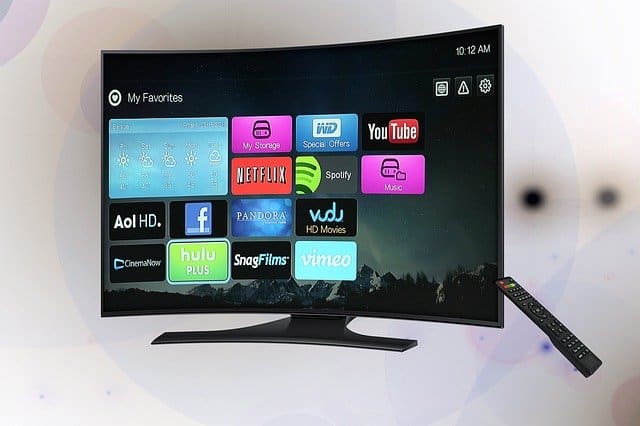Automatic Content Recognition (ACR) refers to technology that enables a device like your smart TV to monitor your activity whether you know about it or not. While it can benefit you in terms of your device knowing more about your likes and interests, the real benefit is to the companies that provide the ACR functionality and collect your data to use as they see fit.
Should you turn off ACR functionality or leave it be?
Automatic content recognition functionality enables your TV manufacturer to access your personal information to sell to third parties for marketing reasons. It also opens up your smart TV to be exploited by a hacker who can take control and access your personal data and possibly your wider home network.
TV manufacturers spy on television owners
As far back as 2017, consumers slowly became aware of how prevalent and accepted ACR is even when we don’t agree to it. The FTC fined smart TV manufacturer VIZIO, Inc $2.2 million for quietly adding software to 11 million consumer televisions without the owners’ knowledge or approval.
smart TV manufacturer VIZIO, Inc $2.2 million for quietly adding software to 11 million consumer televisions without the owners’ knowledge or approval.
VIZIO publicly promoted the benefit of their TVs offering Smart Interactivity to suggest programs and offers for their viewers but failed to explicitly state that this actually involved VIZIO collecting very specific customer data and selling it to third parties who could use this data for their benefit.
Data collected included second-by-second monitoring of what each TV was displaying, IP addresses and viewing habits along with very specific customer information like sex, age, marital status, household size and more. Spying included not only from the television itself but from customers’ cable, broadband, DVD, streaming devices and more.
The result of the case meant that companies like VIZIO now need to explicitly get consent from customers before they are allowed to access and monitor their data. Given how consumers are willing to quickly accept terms and conditions to access apps without regard to what is written, it’s likely that most people don’t even read the disclosures that now exist.
In this day and age of oversharing, social media and accepting software End User License Agreement (EULA) that no one bothers reading, what you don’t know can hurt you.
Is your smart TV spying on you?

Probably.
There are a wide variety of devices and apps that use Automatic Content Recognition or similar functionality. Other than smart TV sets, popular devices that access and monitor (and possibly sell) your viewing habits and data include:
- Amazon Fire TV Edition
- Alexa
- Google Android TV
- LG Live Plus
- Roku
- Samsung Viewing Information Services
- Sony Samba TV
- VIZIO SmartCast
- Nielsen Gracenote
Each specific app may have its own opt in/opt out method so it’s best to check with your manufacturer to learn about how to do so.
How a hacker can use ACR against you
The more we rely on the Internet and allow it to access devices for our convenience, the more we leave ourselves open to a potential attack. A hacker could take control of your smart TV and change your channel or settings or remove you from your network. Clearly this would be disturbing especially to someone who has no idea what is going on.
Certainly there have been very serious cases of swatting and other examples of Internet-enabled apps in the home being exploited in more sinister ways.
Consumer Reports has written extensively on ACR and smart TV security by manufacturer if you’d like to learn more about your specific apps.
has written extensively on ACR and smart TV security by manufacturer if you’d like to learn more about your specific apps.
If you’re concerned with your apps spying on you, you’re not alone. 59% of smart speaker users suggested in a survey from Hub Entertainment Research that they are worried about their privacy when using their apps’ voice control functionality. But they continue to use it anyways.
that they are worried about their privacy when using their apps’ voice control functionality. But they continue to use it anyways.
How to locate your security preferences and turn ACR off
Each smart TV and device manufacturer does things slightly difference but in general terms look in the Settings area for things like:
- Viewing data
- Advertising preferences
- Terms of use
- Privacy policy
- Viewing information
- Voice information
- Interest-based advertisement
- Smart TV experience
- Channel access
- Channel microphone access
- Voice recognition services
How to better protect yourself against ACR attacks and spying
While ACR and similar technology is convenient and may help to tailor smart TV and other app preferences to your personal likes, care does need to be taken. Some quick ways to protect yourself against unauthorized access of your smart TV and home network in general:
- Use unique strong passwords and encryption on any app when one is required and your WiFi. Change them regularly.
- Choose a wired Internet connection for your TV. Your TV generally stays in the same spot anyways. A wired connection is less vulnerable than WiFi.
- Go through your smart TV(s) set up and only give access to the functionality that you use and want.
- Ensure your smart TV gets the latest downloads and updates. Also only download trusted apps.
- Use your smart TV antivirus software if included.
- Cover your camera with a piece of tape when not in use. This includes your PC or laptop.
- If your smart TV appears to have been hacked, do a system or factory reset. If your TV is inaccessible contact the manufacturer for advice.


